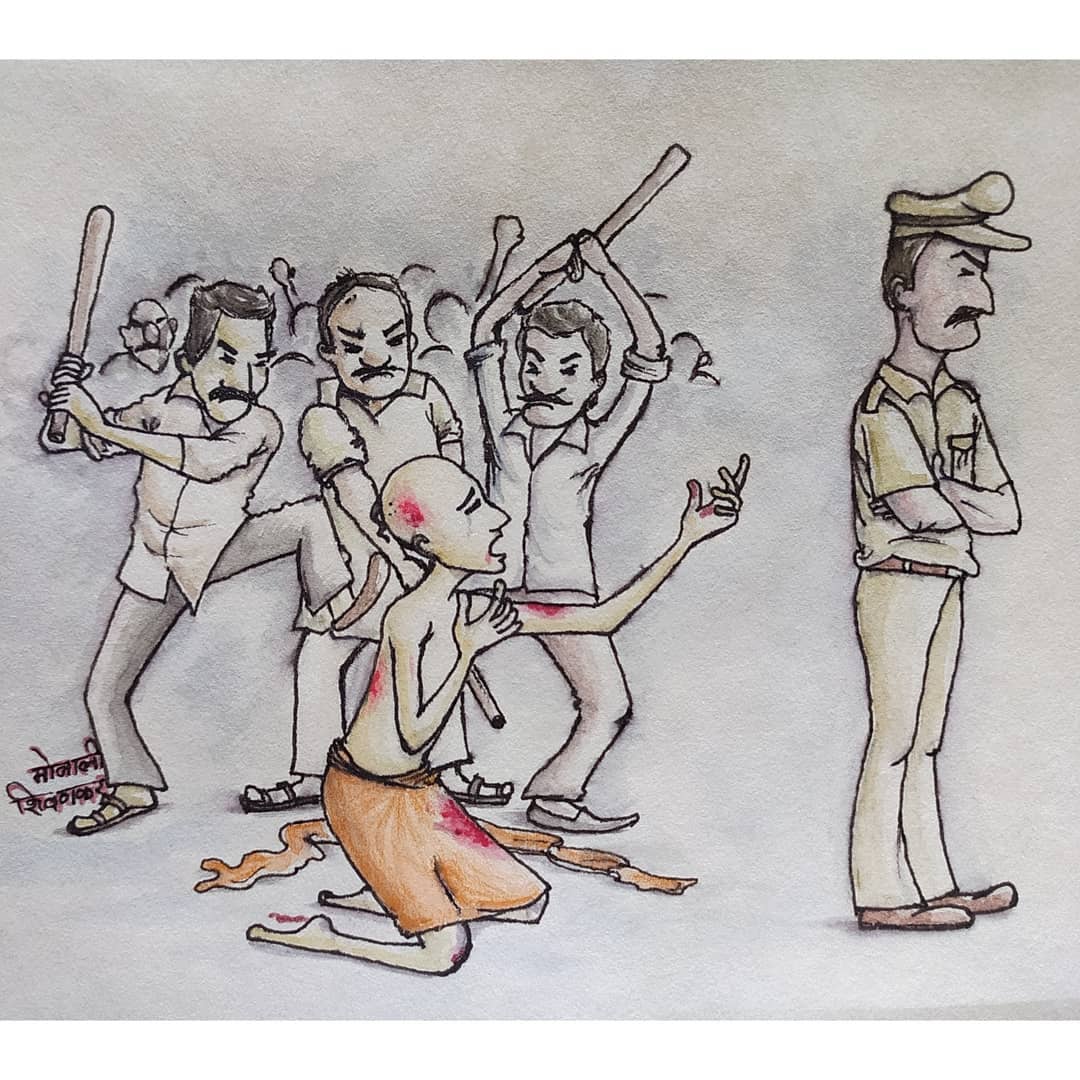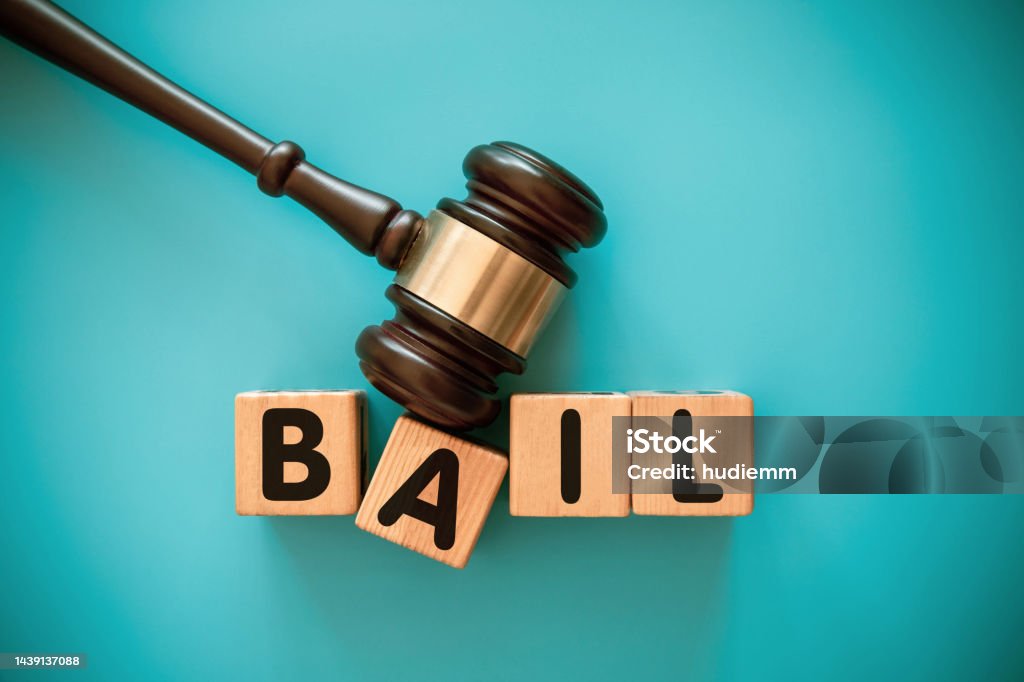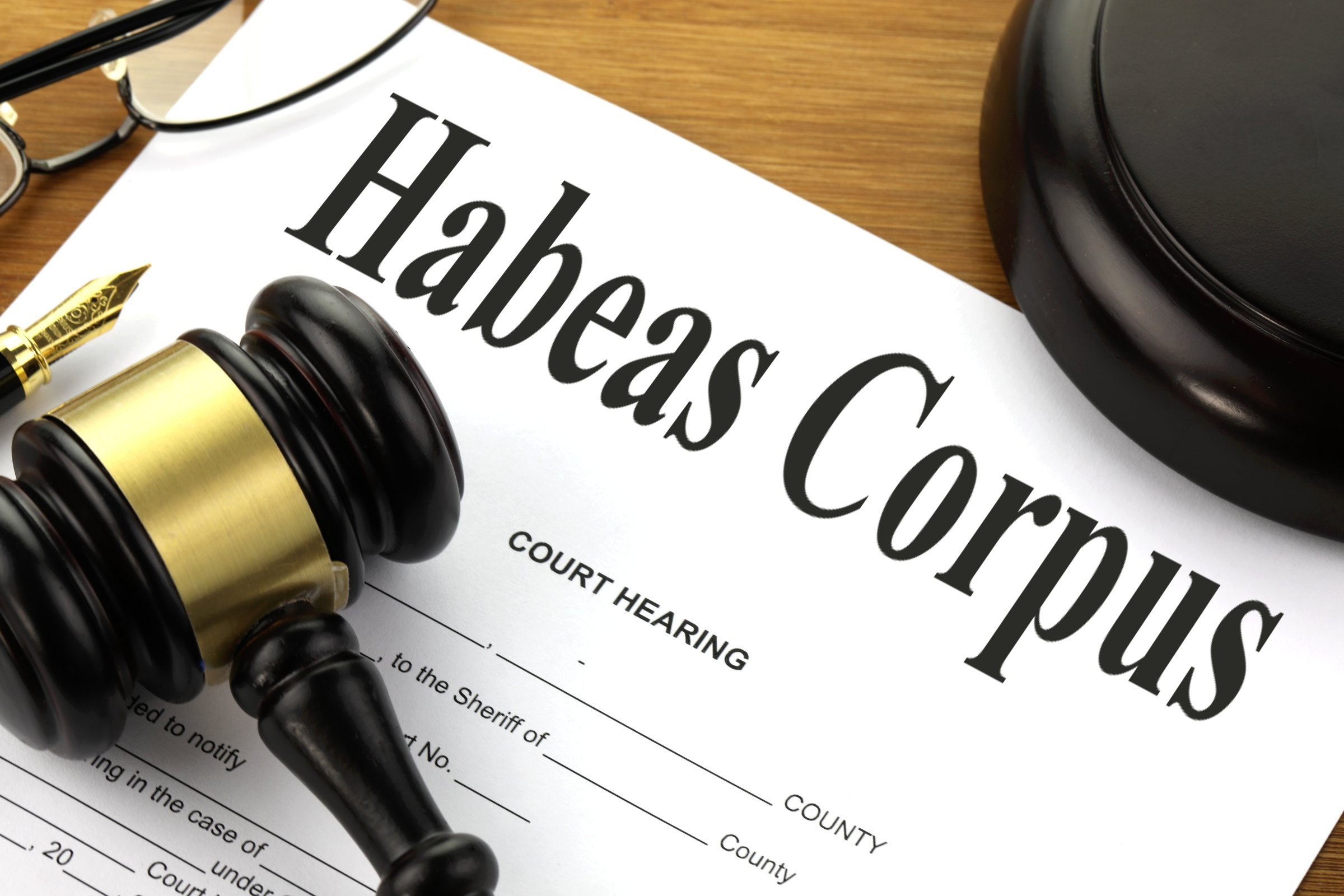Mob Lynching: Relevant Laws And Its Consequences For India
July 14, 2024 | by Team FeenLegal

Introduction
In recent years, mob lynching has emerged as a grave concern in India, casting a shadow over the nation’s commitment to law, order, and justice. The harrowing episodes of violence, targeted killings of minorities especially muslims. Mob lynching often fueled by misinformation and societal prejudices, have not only led to tragic loss of lives but also challenged the very fabric of communal harmony and human rights.
In the older time, these lynching involved hanging the victim to death. Typically, the mob would kill someone who they suspected of being guilty based only on their suspicions, without checking the facts. Like murder or rape, lynching is seen as a serious crime. Whether the killing was pre-planned or spontaneous, the crowd acting as “judge, jury, and executioner” would carry out its crime with complete impunity and no fear of punishment. Since the major power shifting form 2014 mob lynching has been on the rise, This blog aims to delve deep into the phenomenon of mob lynching in India, examining its causes, the socio-political climate that fosters such incidents, and the legal framework surrounding it.
Meaning
According to the Oxford English Dictionary Mob means A large crowd of people, especially one that is disorderly and intent on causing trouble or violence and lynching means the illegal killing of somebody, usually by hanging, by a crowd of people and without a trial.
Mob Lynching is the term for acts of violence committed against an individual by an uncontrolled mob of people with the intention of causing violence. Mob lynching often occur when a hysterical group of people believe someone is guilty of a crime for which a trial has not yet taken place. The mob then proceeds to kill or injure the victim in an attempt to bring about justice. Under such circumstances, the mob may decide to uphold the law on its own, use violence against the offender, and in the process, damage property owned by the public and injure people. Even before a formal trial has taken place, the crowd may become aggressive and employ violence against the criminal.
Under the guise of punishing the offender and bringing justice to the victim, the mob may whip and afflict the accused only if it is believed that the accused has committed a crime, the mob may lynch the accused to death or inflict severe injuries as a form of punishment.
Mob Lynching a threat to nation
One of the most stringing descriptions of the dangers of mob violence was Mark Twain’s response to a racial lynching in Missouri in 1901. He saw in it the danger of America turning into “United States of Lyncher Dom” similarly many activists shown their concerns India turning into lynchistan. The secular Republic of India more than a century later, appears to be amidst the shadow of a similar fear. There have been incidents of mob lynching in Uttar Pradesh also in the name of “Cow Vigilantes” “Gau Rakshak”, “Beef Lynching”, “Cow Slaughter”, “Cow Thieves”, “Beef Smuggling” and Cattle Trader. Dadri (Uttar Pradesh) in the year 2015, invited huge attention because on 20.09.2015, a 52 year old Iron Smith was dragged from his house in the village of Bisahara, District-Gautam Budh Nagar, after a local Hindu Temple announced that the cow considered sacred by many Hindus had been slaughtered by him. The victim was beaten to death and son also received injuries. Another incident took place in district Bulanshahr and Police Outpost-Chingrawathi, Tehsil Syana, was set to fire and Inspector Subodh Kumar and one more person died while seven police personnel, including Circle Officer got injuries. Hon’ble Chief Minister of Uttar Pradesh, Shri Yogi Aditya Nath, further took a quick response and due to which, it could not flare up In other States, there have been incidents of mob lynching on the suspicion of child lifting, suspected thief, suspected kidnapping of girl and on other grounds.
It is necessary to point out that we have ample provisions in our criminal law to punish the wrongdoers but certainly the growing incidents of mob lynching need further specific attention by making provision for preventive measures as well as for rehabilitation measures. It is also not out of the way to say that the victims of mob lynching are also compelled to leave their parental homes. Such incidents took place in the District of Muzaffar Nagar of Uttar Pradesh, where some miscreants after committing violence compelled the residents of a particular community to vacate their houses forever.
The extradition of Kashmiri Pandits from Kashmir by the so-called Locals is also one of the instances where they have to leave their home permanently. The grand massacre of SIKHS after assassination of the then Prime Minister Mrs. Indira Gadhi is also one of the instances of Mob Lynching. Certainly, such incidents need special attention of the State Government so as to discourage and prevent such incidents.
A Sense Of Fear Among Minorities
The Honourable Supreme court and the several high courts, Have expressed the deep concerns the incident of mob lynching have zero impact due to which the minorities specially Muslims are in state of fear,
Our Prime Minister Hon’ble Mr. Narendra Modi on June 29, 2017 slams so called ‘Gau Rakshak’. He said, killing in the name of Gau Bhakti is wrong, no person is allowed to take the law in their own hand. It is unfortunate that in the name of cow protection the human being are killed by so called ‘Gau Rakshak’. He said we are a land of non-violence, What are we doing? Does this country belong to Mahatma Gandhi and Vinoba Bhabe? Mahatma Gandhi would never approve of the present situation, there is no place for violence in India.
Now the then President Hon’ble Mr. Pranab Mukherjee comments on the increasing incidents of lynchings, he said on July 1, 2017 that when “mob frenzy becomes so high and irrational, uncontrollable”, people “have to pause and reflect” and be proactively “vigilant” to “save the basic tenets of our country.” He has also asked the country to stand up against the rising trend of mob lynchings, stressing that the frenzy needed to be curbed.
‘Not In My Name’ A Nationwide Protest Even Abroad
The #NotInMyName protest is a demonstration scheduled in Delhi and several other cities across the country on June 28 (Wednesday) by citizens against incidents of lynching of Muslims and Dalits. The latest case to hit the headlines was the killing of 15-year-old Junaid Khan who was stabbed to death in Ballabhgarh, Haryana by a mob that mocked his skull cap and called him a beef eater after an argument over train seats escalated. Two of his brothers were injured in the incident, The protest is being helmed by Gurgaon-based filmmaker Saba Dewan who gave out the rallying cry. Although it was originally planned to be held just at Jantar Mantar in the heart of New Delhi, the idea has swept up a great deal of response online enough to be replicated across several cities. Some of these protest points are Kolkata, Allahabad, Chandigarh, Jaipur, Patna, Hydrabad, Bengaluru, Mumbai, Lucknow, Kochi and Thiruvananthapuram. The protests are scheduled to be held in London, Toronto, and Boston on June 29. (The Times Of India)
Hon’ble the Supreme Court has shown its concern in various cases and has directed the Government to make special law on the subject which should provide not only for the punishment of the wrongdoers but also provisions for compensation as well as rehabilitation. It has further directed that it is the responsibility of the State administration in association with the Intelligence Agencies to prevent occurrence as well as recurrence of communal violence in any part of the State.
Case Laws
Hon’ble the Apex Court in Kodungallur Film Society and another vs. Union of India and others, dealing with the guidelines/recommendations in destruction of public and private properties has also considered the aspect of mob violence.
In Tehseen S. Poonawalla vs. Union of India and Others Supreme Court dealing with the problem, has suggested preventive measures, remedial measures as well as punitive measures. where the Supreme Court had to deal with a specific type of mob violence and the resulting restraints on personal liberty and free speech. Taking note of burgeoning instances of vigilantism and lynching, the Supreme Court propounded that the States had the duty to ensure that individuals or groups did not take the law into their own hands to prevent untoward incidents and to prevent crime which may include damage caused to property.
The recommendations comprehensively set out the manner in which the State and law-enforcement agencies are expected to deal with the menace of mob violence specifically lynching and vigilantism and further, assign responsibility and accountability to officials to curb such incidents as also punitive measures to deter law enforcement agencies from shirking their duties.”
Existing Laws To Curb Mob Lynching
THE MANIPUR PROTECTION FROM MOB VIOLENCE ORDINANCE, 2018
Manipur was the first State to form a law against mob lynching in the year 2018 and this law was in sync to the guidelines provided by the Supreme Court, Promulgated by the Governor of Manipur in the Sixty-ninth year of the Republic of India.
Section 8. Punishment for offence of lynching. Whoever commits an act of lynching- (a) where the act leads to the victim suffering hurt, shall be punished with imprisonment of either description for a term which may extend up-to seven years and with fine which may extend to one lakh rupees. (b)Where the act leads to the victim suffering grievous hurt, shall be punished with imprisonment of either description for a term which may extend up-to ten years, and with fine which may extend to three lakh rupees. (c) where the act leads to the death of the victim, shall be punished with rigorous imprisonment for life and with fine which may extend to five lakh rupees.
Drawing inspiration from Manipur, even the states of Rajasthan and West Bengal have enacted laws against mob lynching.
West bengal assembly enacted the legislation by passing West Bengal (Prevention of Lynching) Bill, 2019 to punish the convicted of lynching. The Act provided punishment up to life imprisonment, and fine ranging from 1 to 3 lac to those who caused injury, and death penalty or rigorous imprisonment, and fine up to 5 lac, to those who caused death.
Rajasthan passed The Rajasthan Protection from Lynching Bill, 2019 bill. The Act provided the punishment up to 10 years jail or with fine up to 25,000 to 3 lac rs to those causing grievous hurt and punishment for 7 years or with fine of 1 lac rs to those causing any other injury and rigorous life imprisonment tho those causing the death of the victim of lynching.
Article 21. Protection of life and personal liberty- No person shall be deprived of his life or personal liberty except according to procedure established by law.
The Rule of Law is the backbone of Indian Democracy. Article 21 of the Constitution of India guarantees to every person his life and liberty which can only be deprived according to procedure established by law. Every person in India as well as the Government are supposed to follow the Rule of law. If the death penalty by way of shooting publicly is not permitted under the law, it cannot be so executed even by the Government for, howsoever, serious and heinous crime may be.
The Preamble of our Constitution provides for “the government of people, by the people and for the people”, and it further expects prevalence of genuine orderliness, positive propriety, dedicated discipline and sanguine sanctity by constant affirmance of constitutional morality. The success and failure of democracy depends largely on the extent to which civil liberties are enjoyed by the citizens in general. It is the duty of law to protect every member of the society from his fellow members and to prevent their rights and liberties from being encroached upon. Communal harmony is also one of the important aspects of every democracy and our constitution specifically refers to secularism.
Our country is governed by the Rule of Law. According to which, no person can be punished without the authority of law. Any person who commits a crime can be punished through procedure established by law. Despite all these safeguards available to the Citizens of India, there has been a constant increase in the incidents of mob lynching. Merely, on the basis of suspicion, the mob takes the law into their hands and imparts so called “justice” by lynching him.
INDIAN PENAL CODE
Section 141 Unlawful Assembly.– An assembly of five or more persons is designated an “unlawful assembly”, if the common object of the persons composing that assembly is
First.- To overawe by criminal force or show of criminal force, [the Central or any State Government or Parliament or the Legislature of any State], or any public servant in the exercise of the lawful power of such public servant; or
Second.– To resist the execution of any law, or of any legal process; or
Third.- To commit any mischief or criminal trespass, or other offence; or
Fourth.- By means of criminal force or show of criminal force, to any person, to take or obtain possession of any property, or to deprive any person of the enjoyment of a right of way, or of the use of water or other incorporeal right of which he is in possession or enjoyment, or to enforce any right or supposed right; or
Fifth.- By means of criminal force, or show of criminal force, to compel any person to do what he is not legally bound to do, or to omit to do what he is legally entitled to do. Explanation.- An assembly which was not unlawful when it assembled, may subsequently become an unlawful assembly.
Section 147 Punishment for rioting Whoever is guilty of rioting, shall be punished with imprisonment of either description for a term which may extend to two years, or with fine, or with both.
Section 148. Rioting, armed with deadly weapon.– Whoever is guilty of rioting, being armed with a deadly weapon or with anything which, used as a weapon of offence, is likely to cause death, shall be punished with imprisonment of either description for a term which may extend to three years, or with fine, or with both.
Section 149 Every member of unlawful assembly guilty of offence committed in prosecution of common object.– If an offence is committed by any member of an unlawful assembly in prosecution of the common object of that assembly, or such as the members of that assembly knew to be likely to be committed in prosecution of that object, every person who, at the time of the committing of that offence, is a member of the same assembly, is guilty of that offence.
Section 302 Punishment of murder Whoever commits murder shall be punished with death, or [imprisonment for life], and shall also be liable to fine.
Section 307 Attempt to murder Whoever does any act with such intention or knowledge, and under such circumstances that, if he by that act caused death, he would be guilty of murder, shall be punished with imprisonment of either description for a term which may extend to ten years, and shall also be liable to fine; and if hurt is caused to any person by such act, the offender shall be liable either to [imprisonment for life], or to such punishment as is hereinbefore mentioned. Attempts by life-co Attempts by life-convicts.- [When any person offending under this section is under sentence of A [imprisonment for life], he may, if hurt is caused, be punished with death]
323. Punishment for voluntarily causing hurt.- Whoever, except in the case provided for by Section 334, voluntarily causes hurt, shall be punished with imprisonment of either description for a term which may extend to one year, or with fine which may extend to one thousand rupees, or with both.
Section 325 Punishment for voluntarily causing grievous hurt– Whoever, except in the case provided for by section 335, voluntarily causes grievous hurt, shall be punished with imprisonment of either description for a term which may extend to seven years, and shall also be liable to fine.
Section 326. Voluntarily causing grievous hurt by dangerous weapons or means.- Whoever, except in the case provided for by Section 335, voluntarily causes grievous hurt by means of any instrument for shooting, stabbing or cutting, or any instrument which, used as a weapon of offence, is likely to cause death, or by means of fire or any heated substance, or by means of any poison.
Mob Lynching: Before the implementation of BNS, mob lynching was not a separate offence. Section 103 of the BNS introduces it as a serious category of culpable homicide.
Section 103(2) of BNS 2023 states that when a group of five or more persons acting in concert commits murder on the ground of race, caste or community, sex, place of birth, language, personal belief or any other similar ground each member of such group shall be punished with death or with imprisonment for life, and shall also be liable to fine.
UP State Law Commission In Its Recommendation to VII Report
The Commission in its study also feels that the existing law to combat mob lynching is not sufficient for various reasons to be discussed later on but certainly, there should be a separate law to combat mob lynching which should not only provide for punishment to the wrongdoers but also fix the liability of public authorities responsible for maintaining law and order as well as for providing compensation to the victim of the family for the loss of person and property as well as for grievous injury. To combat with the terror and apprehension of repeat incidents, there should also be provisions for rehabilitation of the victims and their families so as to provide for complete protection.
As per the data available on “India spend” website, in Uttar Pradesh, since 2012 to 2019, about 50 incidents have taken place in which there are about 50 victims. Out of these victims, 11 persons were killed while 25 were major assaults. In the backdrop of aforesaid situation, the Commission has taken up this study Suo moto and accordingly recommended to the State Government to make a comprehensive law to combat mob lynching. The Commission has also provided the Draft Bill to state..
The Commission also suggested to include below provisions in its drafted bill
Police officers in charge of a police station are obligated to prevent lynching, including its incitement, commission, and spread in their jurisdiction. They must identify patterns of violence, gather information about the likelihood of an act, and act accordingly. They have the power to exercise authority against mobs, using powers vested in Section 129 of the Code of Criminal Procedure 1973. Penalties for lynching include imprisonment for seven years and a fine of one lakh rupees, ten years and a fine of three lakh rupees, and life imprisonment with a fine of five lakh rupees.
The draft outlines punishments for conspiracy, abetment, aides, and attempts to lynch, as well as obstructing legal process. Those who conspire to lynch or assist in preventing someone’s arrest or trial are punished with imprisonment for up to five years and a possible fine.
Failure to pass/ implement the bill against mob lynching
Despite majority of cases of mob lynching, Uttar Pradesh failed to pass a bill against mob lynching in state assembly. Receiving the directions of honourable supreme court, recommendation of Uttar Pradesh state law commission and several neighboring state like Rajasthan has enacted the law against mob lynching. Uttar Pradesh as state has failed to pass bill to protect the rights of citizen provided under article 21 of the constitution.
Conclusion
Mob lynching represents a dark and troubling phenomenon in our society, where fear, misinformation, and intolerance converge to create a deadly cocktail of violence and injustice. The tragic loss of life and the accompanying trauma inflicted on communities cannot be ignored. So far we have studied the judgement of the Honourable Supreme Court and deep concern expressed by our former President Honourable Mr. Pranab Mukharji and Prime Minister Honourable Mr.Narendra Modi and the recommendation of the UP State Law Commission. However no such measure has been taken yet to protect the rights of individuals provided under Article 21 of the constitution of india.
Mob lynching cannot be stopped merely by punishing the convicts. Governments must enforce stringent laws, ensure swift justice, and promote awareness campaigns to educate the public about the dangers of mob mentality. Civil society too has a crucial role to play in standing against hate and championing the values of peace and unity.
References
Report Of VII State Law Commission On Mob Lynching
https://articles.manupatra.com/article-details/MOB-LYNCHING-A-RECURRING-PHENOMENON-IN-INDIA
https://thewire.in/law/wb-passes-bill-against-mob-assault-and-lynching
RELATED POSTS
View all



